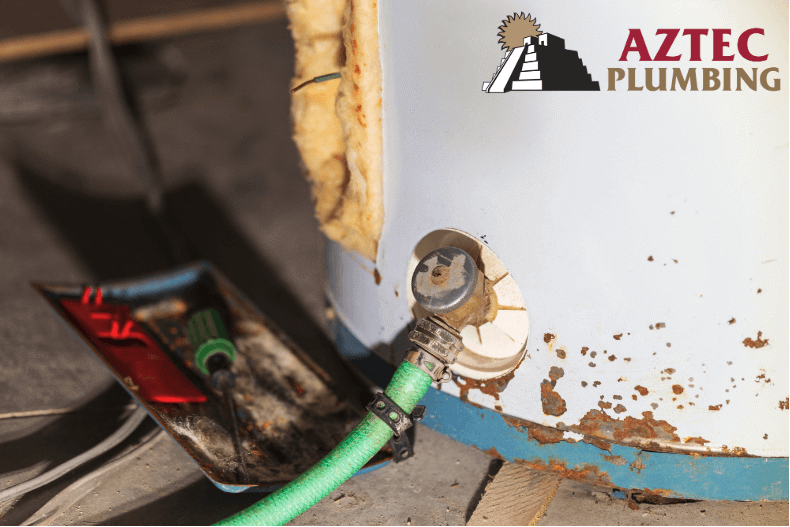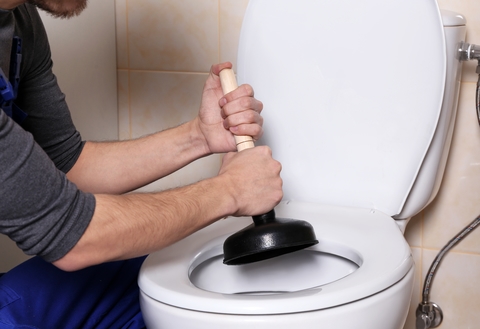A water heater not draining fast enough can indicate sediment buildup or a clogged drain valve. Address these issues promptly to maintain efficiency.
Water heaters play a crucial role in providing hot water for daily needs. Over time, sediment can accumulate at the bottom of the tank. This sediment can impede water flow and reduce the efficiency of your heater. Regular maintenance, such as flushing the tank, can prevent these problems.
If the water heater still drains slowly, the drain valve might be clogged. In such cases, inspecting and possibly replacing the valve could resolve the issue. Ensuring your water heater drains properly helps maintain its longevity and efficiency, providing uninterrupted hot water supply.

Credit: westernrooter.com
Page Contents
Common Causes
Sediment can collect at the bottom of the tank. This sediment blocks the drain and slows the flow. Hard water often leads to more sediment. Regular flushing helps remove these deposits. Ignoring it can cause long-term issues.
The drain valve can get clogged over time. Small particles may block it. This slows the draining process. Cleaning the valve can help. Sometimes, the valve might need replacement. Make sure to check it regularly.
Signs Of Slow Draining
Hot water takes longer to appear. Water temperature is not consistent. Sometimes the water is lukewarm instead of hot. The heater may struggle to maintain a stable temperature. This can be frustrating during showers.
Hearing strange noises from the water heater is a concern. These sounds can be gurgling or rumbling. Noise usually means sediment buildup. This can block water flow and cause slow draining. Regular maintenance can help reduce these noises.
Tools You’ll Need
A wrench is important for this task. It helps to loosen and tighten nuts and bolts. Make sure to have the right size. Using the wrong size can damage parts. Keep it handy for quick adjustments.
A hose is used to drain the water. Attach it to the drain valve. Ensure the hose is long enough. It should reach a safe drainage area. Check for any leaks in the hose. A leaking hose can make a mess.
Step-by-step Guide
First, turn off the water heater. This step is very important for safety. Make sure the heater is off completely. Check twice to be sure. If it’s a gas heater, turn off the gas supply.
Next, attach a garden hose to the drain valve. The hose should be long enough to reach a safe drainage area. Ensure the connection is tight to avoid leaks. Lay the hose flat to help water flow smoothly.
Finally, open the drain valve to let the water flow out. Turn it slowly to avoid splashing. If water does not flow, there might be a clog. Use a small tool to clear the blockage. Keep an eye on the process until the tank is empty.
Preventive Maintenance
Regular flushing helps keep your water heater clean. It removes sediment buildup. Sediment can slow down draining. Use a hose for flushing the tank. Make sure the water is cool before starting. Flush the tank every six months.
The drain valve needs checking. Look for leaks or damage. A faulty valve can cause slow draining. Replace damaged valves quickly. Ensure the valve is tight. This prevents leaks and helps in draining. Check the valve every few months.

Credit: www.aztecplumbing.net
When To Call A Professional
Frequent problems with your water heater need expert help. If draining takes too long, there might be a blockage. Sediment build-up can slow down the process. A professional can inspect and clean the heater. This prevents further damage. DIY fixes might not solve the problem. A trained technician knows the right solutions.
Strange noises from the heater are a warning sign. Banging or popping sounds indicate trapped air or sediment. These sounds mean the heater is not working right. A professional can find the cause of the noise. They will fix it quickly and safely. Ignoring these sounds can lead to bigger problems.
Cost Considerations
Repairing a slow-draining water heater can be costly, depending on the extent of the issue. Budgeting for potential replacement parts and labor is essential.
Diy Costs
Fixing a water heater yourself can save money. Basic tools might be enough. You may need a hose, a bucket, and some cleaning supplies. These items are usually cheap. Expect to spend around $20 to $50. Always follow safety guidelines. Ensure the water heater is turned off before starting. DIY repairs can be risky but rewarding.
Professional Services
Hiring a professional ensures the job is done right. Experts charge for their time and skills. Costs can range from $100 to $300. This includes labor and parts. Some companies offer flat rates. Others may charge by the hour. Always get a quote before hiring. Professionals often provide warranties for their work.

Credit: broadleys.net
Long-term Solutions
Hard water can cause mineral buildup in water heaters. This slows down draining. A water softening system removes these minerals. The system extends the life of your heater. It also improves efficiency. Soft water prevents clogging and scale formation. This leads to faster draining. Installing a water softening system is a wise investment.
Investing in a high-quality water heater ensures better performance. These heaters come with advanced technology. They often have self-cleaning features. This reduces the risk of clogging. High-quality heaters are also more energy-efficient. They drain faster and last longer. Choosing a reliable brand is crucial for long-term satisfaction.
Frequently Asked Questions
Why Does My Water Heater Take So Long To Drain?
Sediment buildup in the tank can slow drainage. Regular maintenance can prevent this issue. Ensure the drain valve is clear.
How Do I Make My Hot Water Heater Drain Faster?
To make your hot water heater drain faster, attach a garden hose to the drain valve. Open the pressure relief valve. Ensure the hose is straight and free of kinks. Turn the drain valve counterclockwise to open it fully. These steps will help speed up the draining process.
How Long Should It Take To Drain A 50 Gallon Hot Water Heater?
Draining a 50-gallon hot water heater typically takes 30 to 45 minutes. Ensure to turn off the power and water supply first.
Why Is My Hot Water Heater Taking So Long?
Your hot water heater may take long due to sediment buildup, thermostat issues, or an undersized unit. Regular maintenance helps.
Conclusion
A slow-draining water heater can cause numerous issues. Regular maintenance and proper troubleshooting are essential. Addressing minor issues early can prevent costly repairs. Always consult a professional if problems persist. By taking these steps, you can ensure your water heater operates efficiently and lasts longer.
Keep your home comfortable and energy-efficient.
